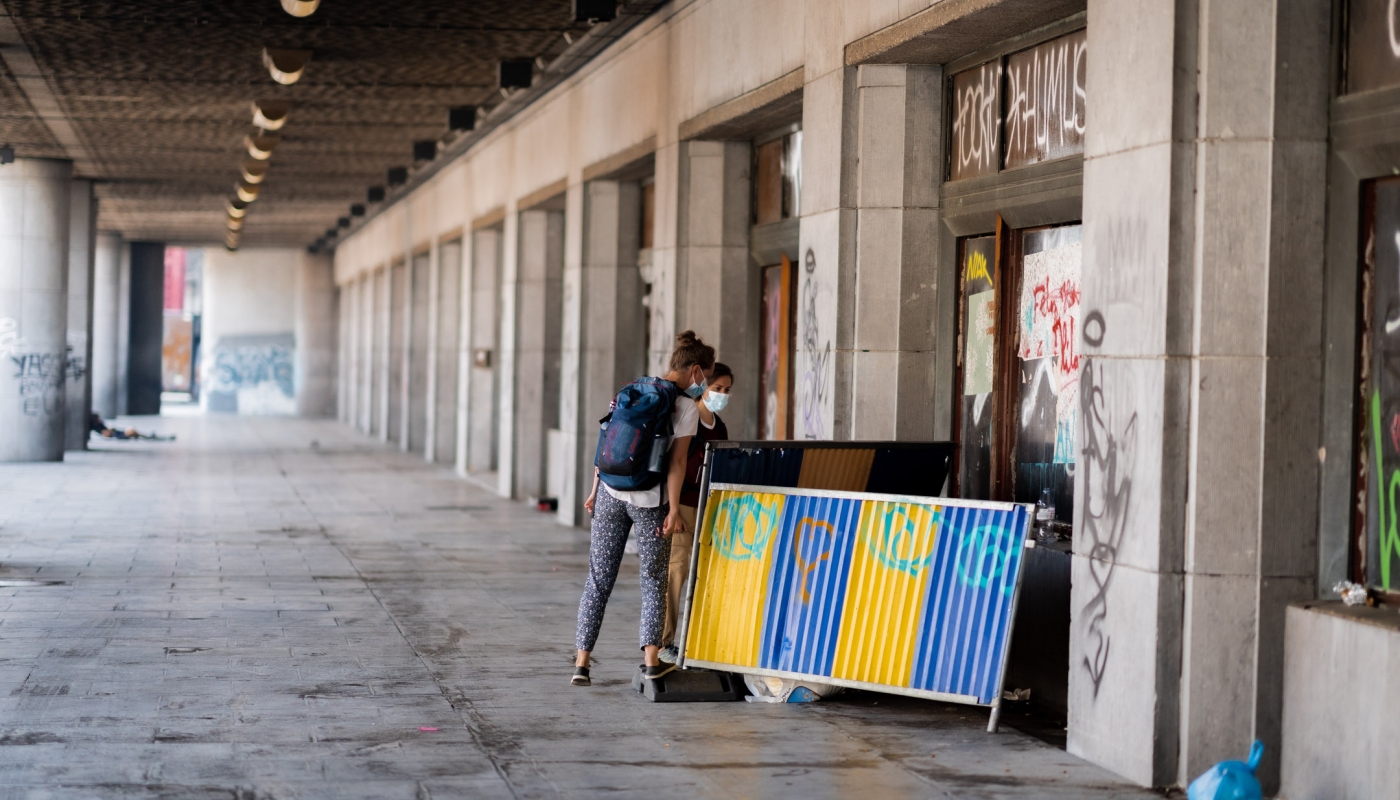Street Nurses is not involved in the hunger strike of the sans-papiers in the church of the Béguinage, the VUB and the ULB.
Nevertheless, Street Nurses is highly concerned about the people on hunger strike.
Like many others, we demand, expect, hope ... that a solution will soon be found for them. This solution can only be political.
Those who deal with homelessness in Brussels cannot escape the problem of irregular migration, of people with no official documents, of an incoherent or even non-existent migration policy, in Belgium, in Europe, in the world.
Indeed, some of our patients are undocumented migrants. An important part of the people living on the streets are undocumented. And we see the consequences of this every day.
Last days, we published the testimony of our colleague nurse Blanca and our patient Mister L. Despite the fact that his body is mutilated, he only has one leg, he is a human being of flesh and blood. Moreover, he has a strong, friendly personality, which the people around him appreciate. He has a body and a mind, all the elements that make him a human being.
"If I want to tell something about him today, it is because the story of his life on the streets moves me so much. Why? Because he tries so hard to improve himself, to get off the drink and move forward. But once we reach a certain point, the progress stops and he falls back again."
Because Mister L. has no papers. And therefore, according to the conventions of our society, he is not a real human being. He is allowed to die, on the street, in a church, on a building site, ... preferably anonymously.
"They hardly have any rights and are exploited. As soon as their bodies break down, they become worthless to the economy, just like a machine. They are left destitute, with the only right to go to the health services - but even that is complicated.
What people forget is that we need a roof over our heads to feel safe, to be able to live with dignity and to take care of our health."
As Street Nurses, we cannot accept that. Our perspective is humanitarian, we put the human being as a human being at the centre. As (medical) care providers, we assist people to live or survive in humane conditions and to find a place in society.
We realize that the problems are complex and that there is much to weigh up. But at the same time, we are convinced that our society has all the means at its disposal to fulfill its responsibility towards our fellow human beings in need in a humane way, regardless of their origin and motives.
With our own resources, entrusted to us by the government and by the public, we do this wherever we can. We expect the same from our policymakers.
"The problem is this: he has no papers. And that blocks him. I admire his courage when I see how, despite all the setbacks, he keeps trying."
We eagerly await the moment when "being human" no longer depends on a paper.
Picture: Pierre-Yves Jortay

